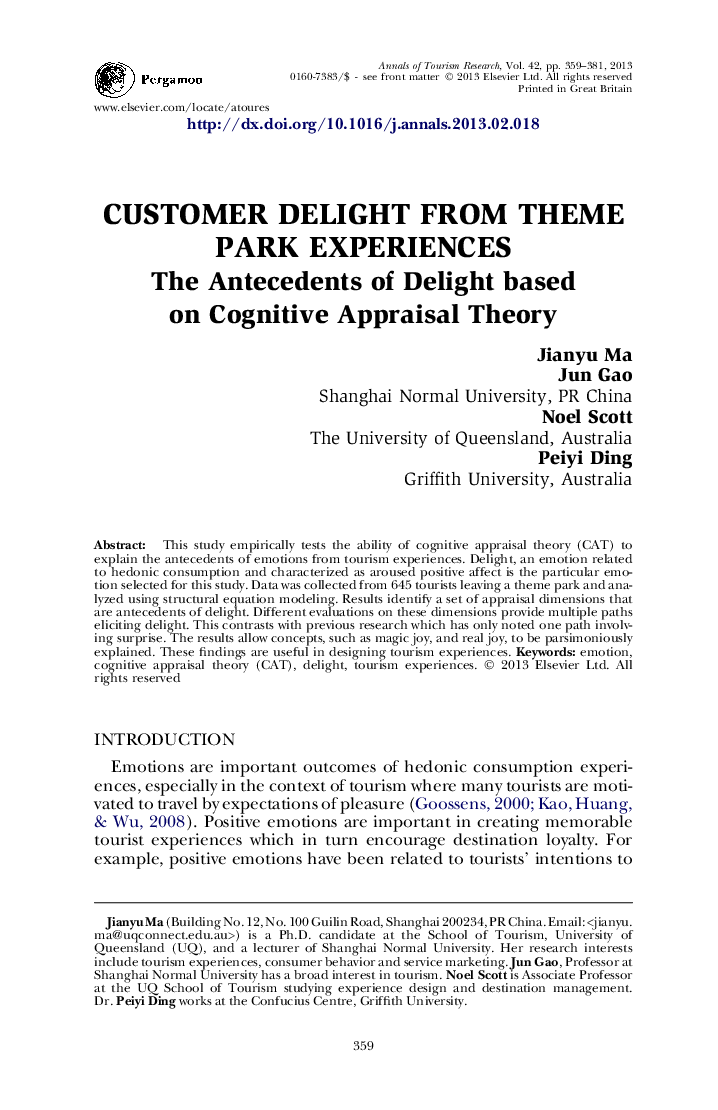| Article ID | Journal | Published Year | Pages | File Type |
|---|---|---|---|---|
| 1007310 | Annals of Tourism Research | 2013 | 23 Pages |
•Cognitive appraisal theory is empirically tested.•Identifies the CAT-based dimensions that elicit delight.•Multiple paths leading to the elicitation of delight are proposed.•Concepts found in the previous literature are parsimoniously explained.
This study empirically tests the ability of cognitive appraisal theory (CAT) to explain the antecedents of emotions from tourism experiences. Delight, an emotion related to hedonic consumption and characterized as aroused positive affect is the particular emotion selected for this study. Data was collected from 645 tourists leaving a theme park and analyzed using structural equation modeling. Results identify a set of appraisal dimensions that are antecedents of delight. Different evaluations on these dimensions provide multiple paths eliciting delight. This contrasts with previous research which has only noted one path involving surprise. The results allow concepts, such as magic joy, and real joy, to be parsimoniously explained. These findings are useful in designing tourism experiences.
